Understanding the Differences: CBD Oil vs. CBD Tincture
CBD oil and CBD tincture are often confused, but they are distinct products with their own unique characteristics. While both offer therapeutic benefits, it's important to understand the differences between them to make an informed choice.
CBD oil is a blend of CBD extract and a carrier oil, such as MCT coconut oil. It is available in various potencies and flavors, making it versatile and easy to incorporate into daily routines. CBD oil can be taken orally or added to food and beverages, and it is commonly used for its potential benefits like pain relief, anxiety reduction, and acne treatment.
On the other hand, CBD tincture is an alcohol-based extract of CBD. It is made by soaking cannabis in alcohol and heating the mixture. CBD tinctures are known for their rapid onset effects and are typically taken sublingually by placing a few drops under the tongue. However, they may have a bitter taste and are less commonly available compared to CBD oils.
When choosing between CBD oil and CBD tincture, personal preferences and goals play a significant role. CBD oils are more accessible and preferred by those with alcohol allergies due to their minimal ingredients. CBD tinctures are often chosen for their fast-acting effects and may be more appealing for immediate relief.
Before incorporating CBD into your routine, it's essential to find a reputable manufacturer and consult with a healthcare professional. They can guide you in selecting the right product and provide personalized dosing recommendations.
Key Takeaways:
- CBD oil and CBD tincture are different products with distinct characteristics.
- CBD oil is a blend of CBD extract and a carrier oil, while CBD tincture is an alcohol-based extract of CBD.
- CBD oils are more common and readily available compared to CBD tinctures.
- CBD oils can be taken orally, added to food and beverages, or used topically.
- CBD tinctures have faster onset effects and are typically taken sublingually.
What is CBD?
CBD, short for cannabidiol, is a compound found in the cannabis plant. Unlike THC (tetrahydrocannabinol), CBD does not have psychoactive effects, meaning it does not produce a feeling of being “high.” Instead, CBD is known for its potential therapeutic benefits.
Research suggests that CBD may have analgesic properties, providing pain relief for conditions such as chronic pain, arthritis, and multiple sclerosis. CBD has also been found to have anti-anxiety effects, potentially helping individuals with anxiety disorders, post-traumatic stress disorder (PTSD), and social anxiety. Additionally, CBD may have benefits for acne treatment due to its anti-inflammatory properties.
CBD interacts with the body's endocannabinoid system, which is responsible for regulating functions such as sleep, mood, appetite, and immune response. By interacting with receptors in the endocannabinoid system, CBD may help restore balance and promote overall well-being.
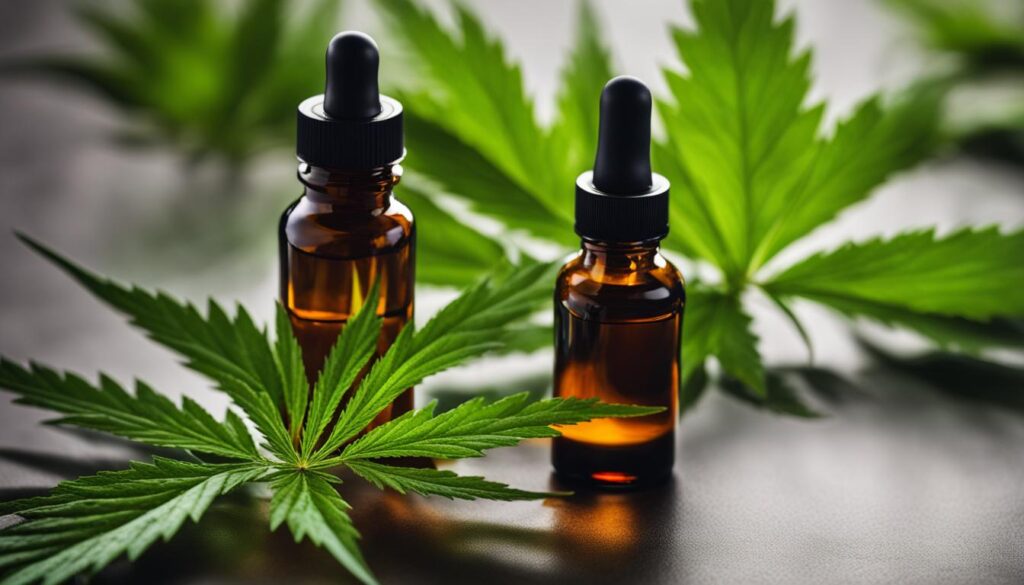
Key Points:
- CBD is a compound found in the cannabis plant.
- Unlike THC, CBD does not produce psychoactive effects.
- CBD has potential therapeutic benefits, including pain relief, anxiety reduction, and acne treatment.
- CBD interacts with the endocannabinoid system in the body.
What is CBD oil?
CBD oil is a popular and versatile form of CBD extract that is blended with a carrier oil, such as MCT coconut oil. This oil serves as a base for the CBD extract, allowing for easy consumption and absorption by the body. CBD oils are available in various forms, including full-spectrum CBD oil and CBD isolate.
Full-spectrum CBD oil contains all the compounds found in the hemp plant, including other cannabinoids and terpenes. This is known as the entourage effect, where the combination of these compounds works together to enhance the therapeutic benefits of CBD. On the other hand, CBD isolates contain only pure CBD, without any additional compounds.
CBD oils can be found in different potencies and flavors, allowing users to choose the strength and taste that suits their preferences. These oils can be taken orally by swallowing or added to food and beverages. Additionally, CBD oils can also be applied topically for targeted relief.
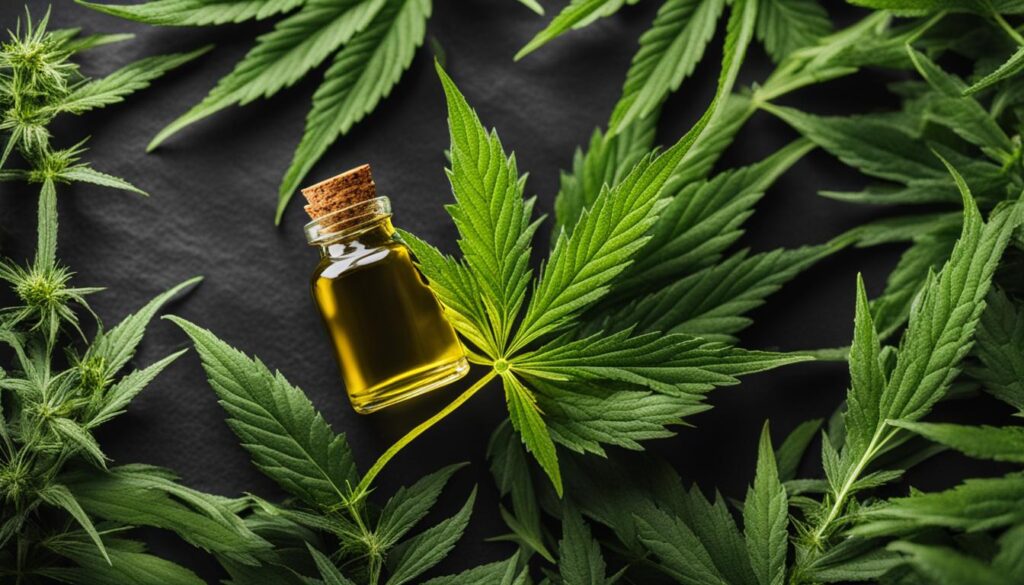
Benefits of CBD oil:
- Potential therapeutic benefits such as pain relief, anxiety reduction, and acne treatment
- Versatile and easy to use, with various administration methods
- Available in different potencies and flavors
- Can be used topically for localized relief
Drawbacks of CBD oil:
- May have a higher price point compared to other CBD products
- Some CBD oils may have a strong flavor
Overall, CBD oil is a widely available and popular choice for individuals seeking the therapeutic benefits of CBD. Its versatility and various administration methods make it a convenient option for users. However, it's important to consider personal preferences and goals when choosing between CBD oil and other CBD products.
Pros and Cons of CBD Oils
When considering CBD oils as a therapeutic option, it's important to weigh the pros and cons. Here, we explore some of the advantages and disadvantages of using CBD oils.
| Pros | Cons |
|---|---|
| Ease of Dosing: CBD oils come with convenient droppers, allowing for precise dosing and customization to meet individual needs. | Higher Price Point: Compared to other CBD products, CBD oils can be more expensive. This may be a limiting factor for those on a tight budget. |
| Topical Use: CBD oils can be applied directly to the skin, offering localized relief for pain and inflammation. | Strong Flavor: Some CBD oils have a distinct natural flavor that may not be appealing to everyone. |
| Wide Variety of Potencies and Flavors: CBD oils offer a range of potencies to suit different needs, and there are also various flavors available to make the experience more enjoyable. | Limited Ingredients: While minimal ingredients can be a positive aspect for some, others may prefer CBD products that contain additional beneficial compounds. |
In summary, CBD oils provide ease of dosing, the ability for topical application, and a wide variety of potencies and flavors. However, they may have a higher price point compared to other CBD products, and some individuals may find the flavor too strong. It's essential to consider personal preferences and requirements when choosing a CBD oil product.
For those seeking a minimalistic approach with precise dosing and potential benefits for localized conditions, CBD oils can be a suitable option. However, individuals who prefer a broader range of ingredients and flavors may find alternative forms of CBD, such as gummies or capsules, more appealing.
Ultimately, it's important to consult with a healthcare professional and conduct thorough research to determine the right CBD product for individual needs and preferences.
What is a CBD Tincture?
A CBD tincture is an alcohol-based extract of CBD. It is made by soaking cannabis in alcohol and heating the mixture. The alcohol acts as a solvent, extracting the beneficial compounds from the plant material. CBD tinctures are known for their high potency and rapid onset effects. They are often used by individuals seeking immediate relief from pain, anxiety, or other symptoms.
One important thing to note about CBD tinctures is their bitter flavor. The alcohol used in the extraction process can create a strong and unpleasant taste. To make the tincture more palatable, manufacturers often add sweeteners or flavorings. However, some individuals may still find the taste challenging to tolerate.
Another consideration when using CBD tinctures is the need for dilution. Depending on the concentration of CBD in the tincture, it may need to be diluted before consumption. This ensures accurate dosing and reduces the risk of consuming too much CBD at once. Dilution can be done by adding the tincture to a beverage or placing it under the tongue with water.
| Pros of CBD Tinctures | Cons of CBD Tinctures |
|---|---|
|
|
“CBD tinctures are known for their rapid onset effects and high potency, making them a popular choice for individuals seeking immediate relief.”
Pros and Cons of CBD Tinctures
When considering the use of CBD tinctures, it's important to weigh the pros and cons. Here are some key advantages and disadvantages to consider:
Pros:
- Rapid Onset Effects: CBD tinctures are known for their fast-acting properties. When taken sublingually, the CBD is quickly absorbed into the bloodstream, allowing for quicker relief compared to CBD oils.
- Easy Dosing: Tinctures often come with a dropper, making it easy to measure and control the dosage. This is especially beneficial for individuals who require precise and customizable dosing.
- Mix with Food and Beverages: CBD tinctures can be easily mixed with food or beverages, providing a convenient way to incorporate CBD into your daily routine.
Cons:
- Bitter Flavor: CBD tinctures typically have a strong, bitter taste due to the alcohol base. This may not be appealing to everyone and can make it challenging to consume without the addition of sweeteners or flavorings.
- Less Available: CBD tinctures are generally less common and may not be as readily available as CBD oils. This limited availability can make them harder to find, especially in certain areas.
- Not Effective as a Topical: Unlike CBD oils, tinctures are not recommended for topical use. Their alcohol base may cause skin irritation, making them less suitable for topical applications.
Considering these pros and cons can help you make an informed decision when choosing between CBD oils and tinctures. Remember to consult with a healthcare professional before incorporating any CBD product into your regimen.
Is one better than the other?
When it comes to choosing between CBD oil and CBD tincture, there is no definitive answer as to which one is better. The choice between the two largely depends on personal preferences and individual goals. Let's take a closer look at some factors that may influence your decision.
Production Process and Base Ingredient
The production process and base ingredient are the primary differences between CBD oil and CBD tincture. CBD oil is a blend of CBD extract and a carrier oil, such as MCT coconut oil. On the other hand, CBD tincture is an alcohol-based extract of CBD. If you have an alcohol allergy, CBD oil may be a more suitable option for you.
Preference for Oil or Alcohol
Some people may have a preference for oil-based products, while others may find alcohol-based products more appealing. CBD oils generally have a milder taste compared to CBD tinctures, which can have a bitter flavor due to the alcohol content. If taste is an important factor for you, CBD oil may be the better choice.
Availability and Accessibility
Another factor to consider is the availability of CBD oils and CBD tinctures. CBD oils are more common and readily available compared to CBD tinctures. If accessibility is a concern for you, CBD oil may be the easier option to find and purchase.
Ultimately, both CBD oil and CBD tincture can be effective in providing therapeutic benefits. It is important to find a reputable CBD manufacturer and consult with a healthcare professional before using any CBD product. By considering your personal preferences, goals, and individual needs, you can make an informed decision on which product is best suited for you.
| Factors | CBD Oil | CBD Tincture |
|---|---|---|
| Production Process | Blend of CBD extract and carrier oil | Alcohol-based extract of CBD |
| Base Ingredient | Carrier oil, such as MCT coconut oil | Alcohol |
| Taste | Milder taste | Bitter flavor due to alcohol content |
| Availability | More common and readily available | Less common and may be harder to find |
How to Take CBD Oils and Tinctures?
When it comes to CBD oils and tinctures, there are different methods of consumption depending on your preferences and desired effects. Here, we will discuss the various ways to take CBD oils and tinctures, including ingestion, sublingual administration, and topical use.
Ingesting CBD Oils
One common way to consume CBD oils is through oral ingestion. This involves swallowing the oil directly or adding it to food and beverages. CBD oils that are specifically designed for ingestion often come with a dropper for easy and accurate dosing. Keep in mind that the effects may take longer to kick in when ingesting CBD oil, as it needs to be processed through the digestive system.
Sublingual Administration of CBD Oils and Tinctures
Sublingual administration involves placing a few drops of CBD oil or tincture under your tongue and allowing it to absorb through the mucous membranes. This method allows for faster absorption into the bloodstream, as the CBD bypasses the digestive system. Hold the oil or tincture under your tongue for 30 seconds to a minute before swallowing. This method is ideal for those seeking faster onset effects.
Topical Use of CBD Oils
CBD oils can also be used topically by applying them directly to the skin. This method is often used for localized relief, such as soothing sore muscles or reducing inflammation in specific areas. Simply massage a small amount of CBD oil onto the desired area and allow it to absorb into the skin. Topical use of CBD oils is not recommended for CBD tinctures, as they are alcohol-based and may cause irritation.
In conclusion, CBD oils and tinctures offer different methods of consumption for individuals looking to incorporate CBD into their wellness routine. Whether you prefer ingesting CBD oil, using it sublingually, or applying it topically, there is a method that suits your needs. Consider your desired effects and personal preferences when deciding how to take CBD oils and tinctures.
Conclusion
In conclusion, it is important to understand the differences between CBD oil and CBD tincture. CBD oil is a mixture of CBD extract and carrier oil, while CBD tincture is an alcohol-based extract. Both products offer potential benefits such as pain relief, anxiety reduction, and acne treatment.
When deciding between CBD oil and CBD tincture, it ultimately comes down to personal preferences and goals. CBD oils are more common and easier to find than CBD tinctures. However, CBD tinctures have faster onset effects and may be more attractive for immediate relief.
Regardless of which product you choose, it is crucial to find a reputable CBD manufacturer and consult with a healthcare professional before using any CBD product. This will ensure that you are using high-quality CBD and taking it in a manner that suits your needs and preferences.
FAQ
What is the difference between CBD oil and CBD tincture?
CBD oil is a blend of CBD extract and carrier oil, while CBD tincture is an alcohol-based extract of CBD.
What are the benefits of CBD oil?
CBD oil has potential therapeutic benefits such as pain relief, anxiety reduction, and potential benefits for acne.
What are the uses of CBD tincture?
CBD tincture can be used for pain relief, anxiety reduction, and potential benefits for acne.
How can CBD oil and CBD tincture be taken?
CBD oil can be ingested orally, added to food and beverages, or applied topically. CBD tincture is taken sublingually, absorbed through the mucous membranes under the tongue.
Are there any differences in availability between CBD oil and CBD tincture?
CBD oils are more common and easier to find compared to CBD tinctures.
What are the pros and cons of CBD oils?
Pros of CBD oils include easy dosing, the ability to be used topically, and the ability to be mixed with food and beverages. Cons include a higher price point and some may have a strong flavor.
What are the pros and cons of CBD tinctures?
Pros of CBD tinctures include faster onset effects and the ability to be mixed with food and beverages. Cons include a bitter taste and they may not be as readily available.
Is one better than the other, CBD oil or CBD tincture?
The choice between CBD oil and CBD tincture depends on personal preferences and goals. CBD oils often contain fewer ingredients and may be preferred by those with allergies. CBD tinctures have faster onset effects and may be more attractive for immediate relief.
How should I take CBD oils and tinctures?
CBD oils can be taken orally, added to food and beverages, or applied topically. CBD tinctures are taken sublingually and should not be used topically.
Source Links
- https://www.medicalnewstoday.com/articles/cbd-oil-vs-tincture
- https://www.healthline.com/health/cbd-oil-vs-tincture
- https://www.forbes.com/health/cbd/cbd-oil-vs-tincture/
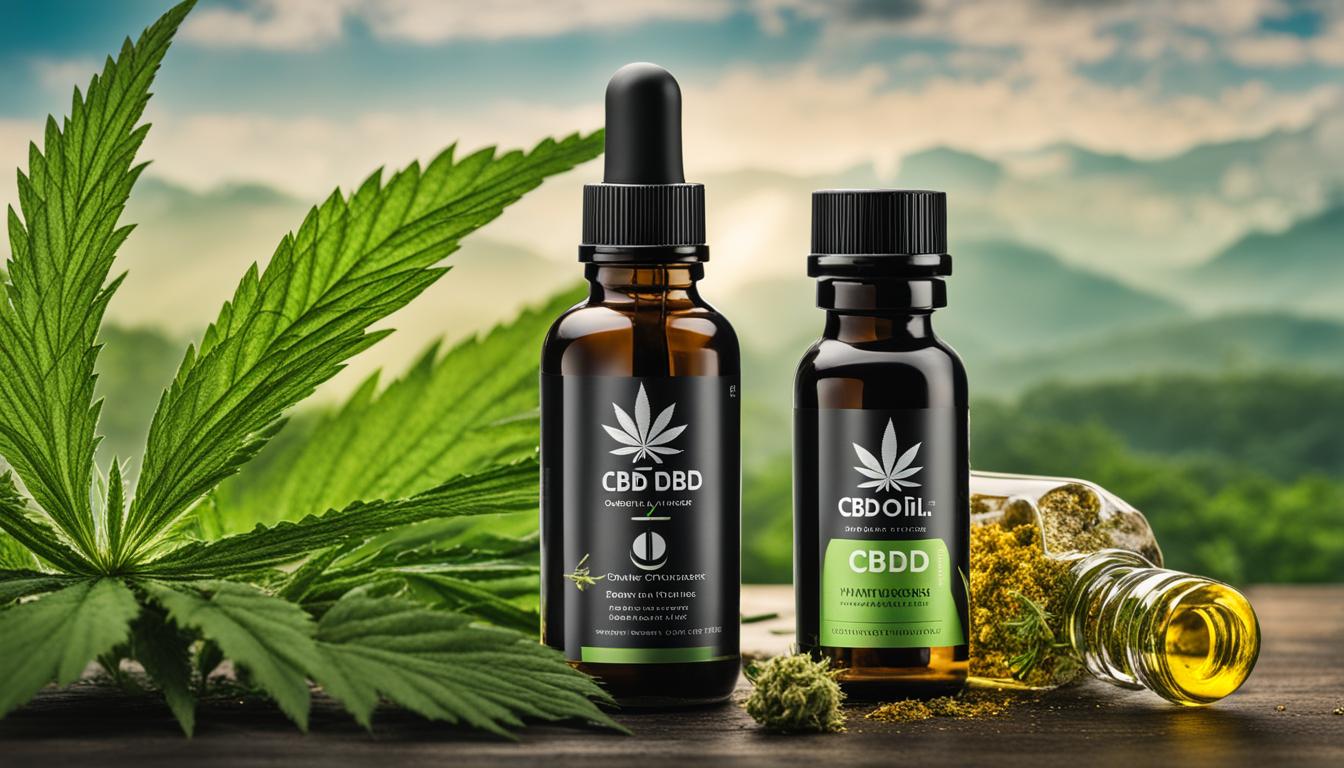
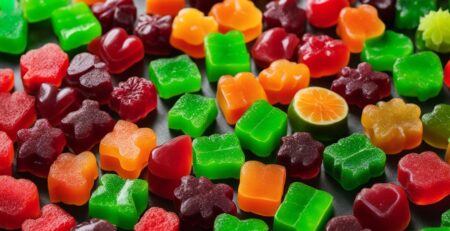
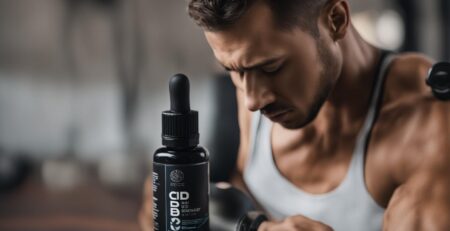

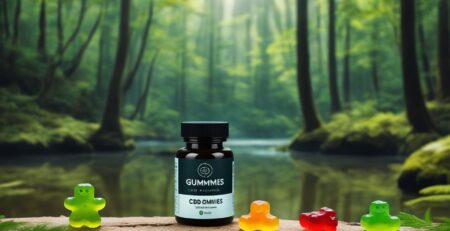


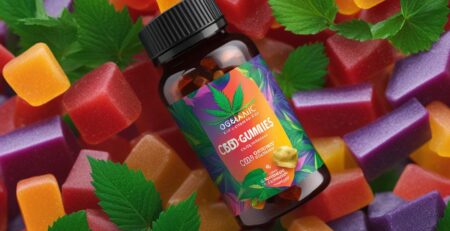



Leave a Reply